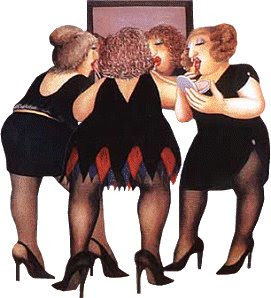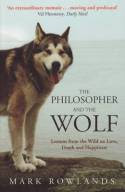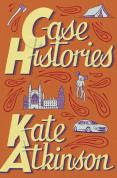 "I thought 'are we going to the zoo?' " my mother says, peering round at me from the passenger seat of the car, "and then I thought 'no we can't be; it's too late' "
"I thought 'are we going to the zoo?' " my mother says, peering round at me from the passenger seat of the car, "and then I thought 'no we can't be; it's too late' " I can't quite make out my sister's face. In fact, from where I'm sitting in the rear of her smart red Mini Clubman, I can only really see the back of her left arm, a tuft of hair and one elongated triangular black leg of her sunglasses.
"Would you have liked to have gone to the zoo, then?" my sister asks.
"Well no, not really. Well, yes I suppose I would, but only if T and W were coming. Spend an afternoon looking at the animals..."
It would seem that my sister and I are not considered satisfactory zoo companions. Given that the zoo is not where we're going, that's quite ok.
A small pause while she ponders and my sister takes the coast-bound slip road of the A2, the car ringing its way round an almost full 360 degrees before straightening once more and heading on down the dual carriageway. It's about 6 o'clock and the sky is June blue. Open fields of matte beige corn and zingy zesty yellow rapeseed pass us by, studded here and there by thick dark felt-leafed islands of oak and ash. Some white bleached hulks of long dead elms are among them too, the scarred and twisted remains left behind by the fatal kiss of Dutch Elm Disease.
My mother interrupts her own pause. "Morris dancing? Are we going to a display of morris dancing then?"
"Morris dancing?" My sister's voice manages to pass through several registers of incredulity in just two words. I can feel her eyebrows arching through the back of her head. I laugh.
"Morris dancing? Blimey no. You'd be on your own there I think" and we all chuckle as we individually try to picture ourselves watching infinite numbers of folk dressed in peculiar white outfits with bells around their knees clonking ribbon-covered sticks and shouting hey nonny, nonny nonny no whilst a band of no discernible talent whatsoever plays a never-ending chorus of discordant tunes.
"No," says my sister finally, "we're not going to see morris dancing".
And so the guessing game continues all the way to Canterbury. All the way into the foyer of the Gulbenkian Theatre. All the way to our table in the cafe. When my sister had suggested this treat for our mother's birthday, I thought it was a great idea. I am also exceedingly impressed that my sister has managed to arrange it all without revealing to her where we're going or what we're seeing. Mum's still guessing, squinting now at the show posters hung in huge glass frames around the walls.
Her eyes alight on one with writing big enough to read from our table. "Ah! Is it the Mikado?"
"No, it's not the Mikado. Shall I show you the tickets now?" says my sister, pulling out and unfolding the concertina of paper from her handbag and handing them to mum. Mum delves in her soft sage leather bag and puts on her specs. "Germaine Greer! Wonderful!"
And so it is that we take up our plush red seats in the auditorium half an hour later, a couple of hundred women (and a few brave men) to spend an hour and a half in the company of a living legend. When Germaine Greer wrote The Female Eunuch she'd have been about 30 years old. Now aged 70, Professor Greer walks onto the stage in a black dress and silver flat soled shoes to tumultuous applause. She's here, as part of the Theatre's 40th anniversary celebrations, to deliver a talk entitled 40 years of feminism and fun.
If those words seem mutually exclusive in a sentence, then in real life she dazzles. She speaks for three quarters of an hour or so without notes - witty, erudite, entertaining - and then invites questions from the audience to which she gives her full attention. The microphone roams around the room as people put their hands up; I detect a frown grip Germaine's brow when a man asks a question, but she rolls on taking the audience with her and with frequent gales of laughter. The last question, from a dark-haired woman, is extremely moving. She pays tribute to Ms Greer for changing her life. Germaine is clearly moved by this, we all are, and when it's time for her to go, the applause lasts for several minutes after she's disappeared behind the stage curtain.
We file outside and my sister queues up to buy a couple of books. Mum, a few years younger than Germaine, has loved it. All three of us have. We chat all the way home, discussing the things that were said and thinking about our own experiences.
Mum's actual birthday is on Monday. We're also not going to the zoo then either.
 ... a little more action please, as Elvis might have put it. With or without a rhinestone studded wing-collared jumpsuit.
... a little more action please, as Elvis might have put it. With or without a rhinestone studded wing-collared jumpsuit. 























